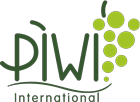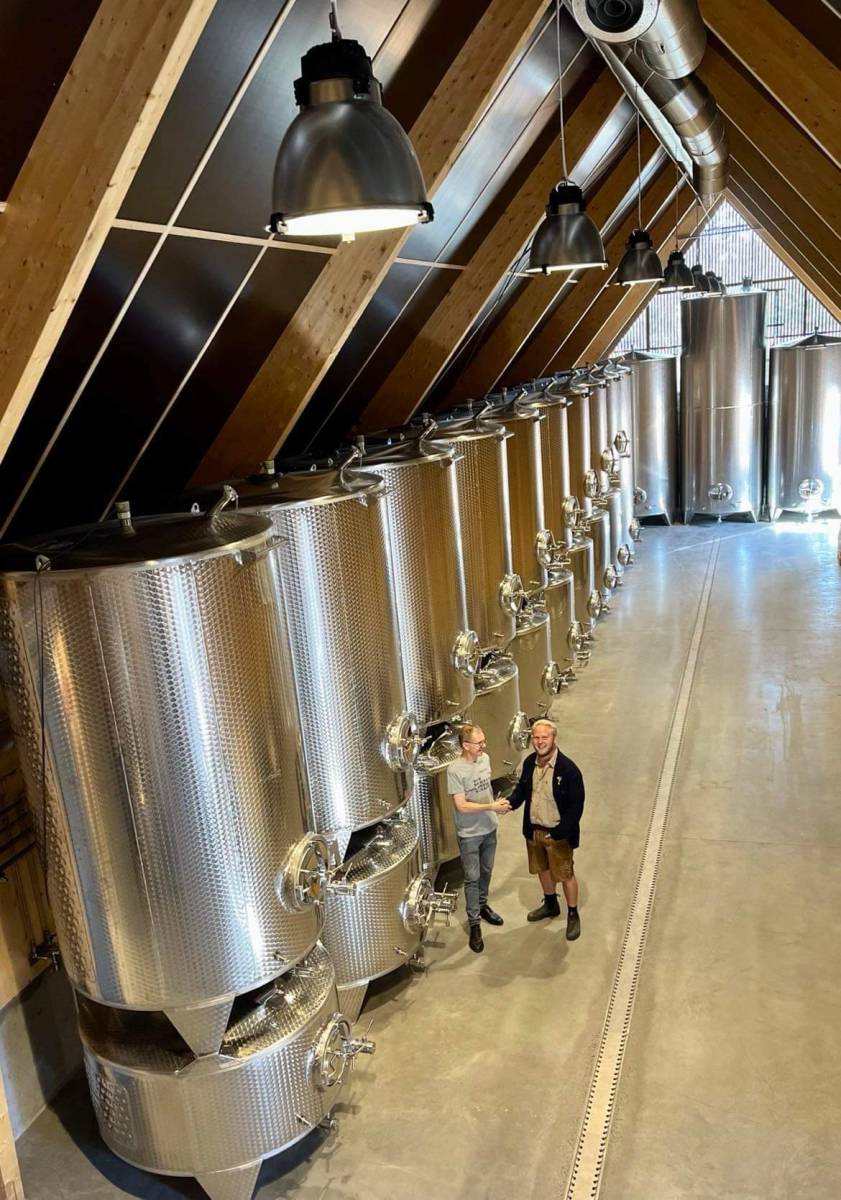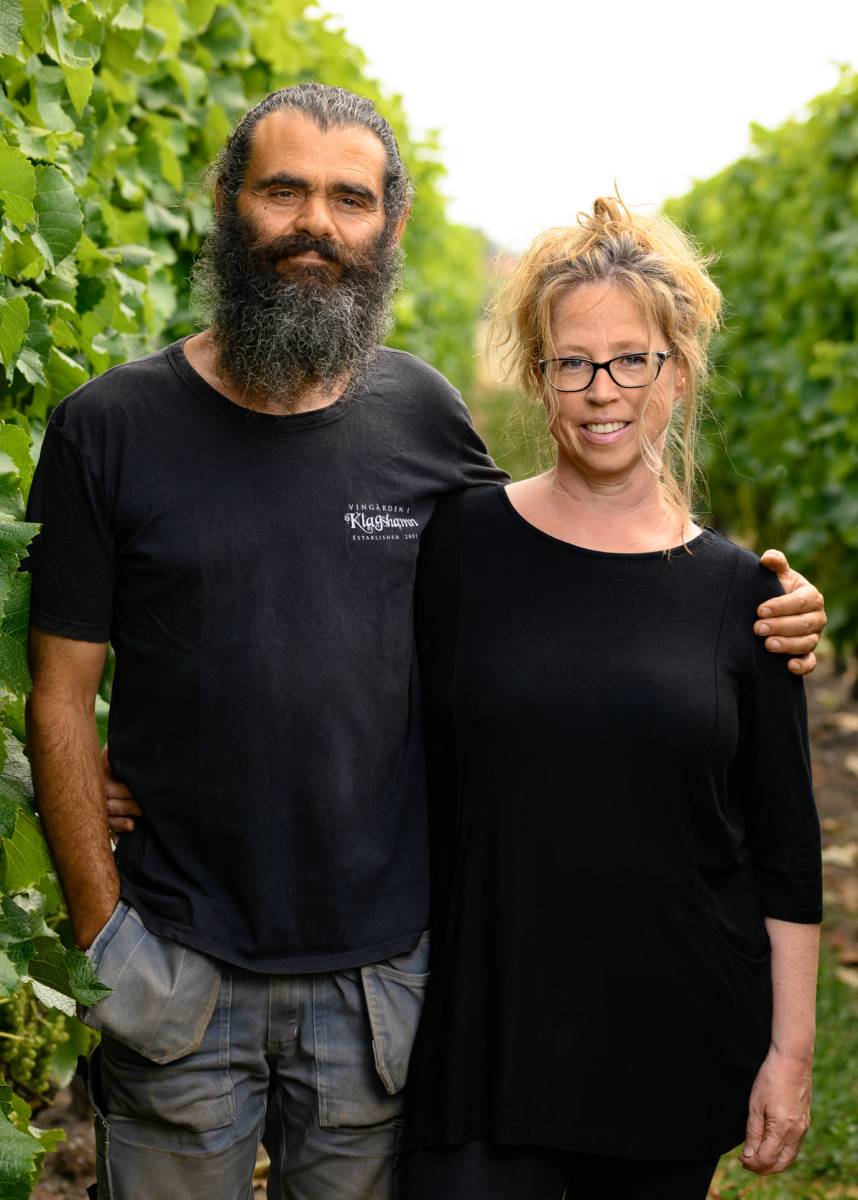Svezia
Contatto
- Lena Sarnholm
Giornalista e sommelier WSET livello 3
+46 70 539 59 88
@sarnholmlena
Lavoro part-time in un wine bar di Stoccolma per tenermi in contatto con la realtà e quello che sta succedendo. Organizzo anche degustazioni e svolgo alcuni lavori di consulenza.
Lena Sarnholm
Ora stiamo lanciando un capitolo locale per la Svezia per promuovere i nostri vini su scala più ampia e collaborare in patria. Unisciti a noi e diventa un membro di PIWI International

News
L’industria vinicola svedese diventa internazionale
Quest'estate, la Svezia ospiterà la propria “Paris Wine Tasting” in stile 1976, mettendo a confronto i vini svedesi con quelli internazionali. La degustazione fa parte di uno sforzo per commercializzare il vino svedese a livello internazionale. Tutto va sotto il nome La degustazione di vini svedesi 2024.
La Svezia è ufficialmente un paese vinicolo dal 2010 e lo sviluppo è rapido. La superficie vitata è decuplicata e la qualità ha tenuto il passo. La stragrande maggioranza sono uve PIWI, con la Solaris chiaramente dominante. Ora l’industria ritiene che sia giunto il momento di mostrare i propri successi su scala più ampia. La degustazione di vini svedesi 2024 si compone di due parti: una degustazione nazionale nel mese di giugno e uno degustazione internazionale nel mese di agosto, a cui hanno partecipato alcuni dei migliori degustatori di vino del mondo come Andras Larsson e Arvid Rosengren, entrambi sommelier campioni del mondo, partecipano.
La degustazione internazionale avrà luogo il 28 agosto presso lo stabilimento Koenigsegg a Scania . Qui, i vini svedesi competeranno in una rigorosa degustazione alla cieca contro vini internazionali dello stesso stile e fascia di prezzo. È tempo che il vino svedese faccia il salto da un’imprenditorialità fresca e audace a una produzione artigianale di alta qualità di calibro internazionale. Per sostenere il settore in questo viaggio, crediamo che un evento di questo tipo sia la cosa giusta”, afferma Emma Serner, presidente di SBOV, l’associazione professionale svedese per l’enologia e la cultura del vino.
L'obiettivo generale è dimostrare il potenziale dell'industria vinicola svedese e creare le condizioni per un ulteriore sviluppo ed esportazione, nonché per attrarre visitatori stranieri.
– La produzione vinicola svedese sta facendo grandi progressi nell’espansione della superficie coltivata e nell’ampliamento delle varietà e della gamma di uve. Vediamo potenziale per l’esportazione alimentare svedese, nuovi posti di lavoro e una nuova industria primaria per la Svezia che sia in linea con l’artigianato locale, il know-how e la qualità”, afferma Maria Kärnerud, program manager di Try Swedish, il programma di esportazione alimentare di Business Sweden.
Anche presentare la Svezia come un paese vitivinicolo alternativo e sostenibile gioca un ruolo importante, poiché la produzione di vino si differenzia da altri paesi dell’UE a causa delle uve – quasi esclusivamente PIWI – e di un quadro giuridico generalmente più sostenibile per la coltivazione.
I visitatori stranieri vogliono cibo e bevande locali e i ristoranti di Scania sono generalmente bravi a utilizzare ingredienti locali. Difficile però trovare vino locale nei ristoranti, ma c’è molto interesse a saperne di più. Si tratta di un’iniziativa perfetta che speriamo possa portare ad una maggiore domanda di vino locale nei ristoranti”, afferma Anna Ek-Gustavsson, responsabile del turismo gastronomico presso Visit Skåne.
La degustazione nazionale si svolgerà il 3 giugno allo Stadshuset di Stoccolma e si rivolge principalmente al mercato interno. Verranno presentati e valutati un centinaio di vini. Il risultato fornirà un quadro generale della qualità dei vini svedesi e allo stesso tempo la degustazione costituirà una qualifica per l'esclusiva degustazione finale di agosto.
In Svezia si continua a lavorare per ottenere lo status di denominazione di origine geografica (IGP).
– L’idea è quella di dividere l’origine in base ai paesaggi esistenti, dice Emma Serner, sottolineando che l’attenzione è sulla qualità e non su un profilo di gusto specifico.
– Saremo generosi per non metterci alle strette. I documenti sono stati presentati all'Autorità alimentare svedese per un ulteriore esame.
Fatti sul vino svedese
– Attualmente sono circa 200 i viticoltori con i propri vigneti.
– Quasi 8 vini svedesi su 10 sono prodotti a Scania, nel sud del paese.
– In totale si contano circa 150 ettari di vigneto con una produzione di circa 300.000 litri.
– Nel settore lavorano circa 50 dipendenti a tempo pieno, più diverse centinaia di persone nei settori della fornitura, della manutenzione e dei servizi.
– I vitigni più coltivati sono il Solaris (circa 50 ettari), seguito dal Cabernet cortis e dal Pinot Nero Précoce (Borgogna Precoce).
– Circa 95 % delle uve sono PIWI.
La Svezia sta lavorando per ottenere l'IGP
Grande investimento a Kullaberg – nuova cantina per 100.000 bottiglie
Mentre la vendemmia era ancora in corso, è stato inaugurato l'investimento più importante della Scandinavia nella produzione di vino: una nuova cantina a Kullabergs Vingård con una capacità di 100.000 bottiglie all'anno.
– Le bevande sono una parte importante della gastronomia di Skånes ed è importante che abbiamo persone che osano investire e lavorare sodo, ha affermato il governatore Anneli Hulthén, che ha tagliato il nastro blu e giallo.
L'edificio, progettato dal 2017 con la costruzione iniziata esattamente due anni fa, ricorda un tipico quadrilatero di fattoria locale e, come tutto il resto dell'azienda, ha un focus ambientale.
– Con un telaio in legno lamellare e pareti in legno massiccio, siamo all'altezza dei nostri requisiti di sostenibilità, ha affermato l'architetto Paulina Berglund, anche lei parte della coppia di proprietari dietro Kullabergs Vingård.
Le medaglie stanno quasi diventando un luogo comune per Fredholms Vingård in Svezia.
They have only 1800 vines and got 96 points at PIWI International Challenge 2022 for their Solaris ”Elsa” – one of ten wines awarded Top Gold.
Medals are almost becoming commonplace for Fredholms Vingård in Sweden.
– It is the first time that we are submitting wine to a competition solely for PIWI. Previously we’ve wanted to compare ourselves to other wines, says Pär Fredholm at Fredholms Vingård.
The wine „Elsa“, a 100% Solaris that was first released in 2017, has previously been awarded four great golds, five golds and one silver at competitions in Spain, Germany and France. The wine has a couple of days of maceration with one third in French oak barrels before final aging for seven months in steel tanks.
– Internationally, „Elsa“ has always received over 90 points. It’s amazing that it can performs so well everywhere, all the time. Why? I think that part lies in the minerality, the saltiness and the high pH – the acid never becomes aggressive, says Pär Fredholm.
Fredholms Vingård is located, like most wineries in Sweden, in Skåne in the very south. The couple Jenny and Pär Fredholm started in typical Swedish manner on a small scale with red grapes. 25 Rondo cuttings were planted in 2002. Pär Fredholm shakes his head:
– Rondo is not our favorite grape, but at the time everyone here wanted to make red wine. However, it didn’t take long before people realized that the wine from Rondo was not that good, but that white was better suited.
However, he is much more fond of Siramé, which he hopes will get more attention in Sweden.
– It’s a fantastic grape that rarely gets sick. It’s a shame it isn’t more popular. We use it in our rosé together with Rondo, where the latter works better.
Fixed focus is Solaris. The first cuttings were planted in 2008, but it is only from vintage 2017 – the premiere vintage of the prize-winning wine „Elsa“ – that they think they have gotten to know the grape and know how to treat it.
– We prune hard for low yield, around 0.8–1 kilo per log. In the winery, we let the grape skins macerate for a couple of days before fermentation, partly to raise the pH value. Acid is indeed the backbone of all wines, but it can also be the winemaker’s worst enemy.
The 2022 harvest has just finished, and Pär and Jenny Fredholm are satisfied with the vintage, which, however, got off to a tentative start with a cold spring and early summer.
– Then came the heat – but no rain, so some here had problems with stress in their vines. Ours could handle it, so we got a normal maturity and about 13 degrees alcohol, says Pär Fredholm.
Though, he emphasizes the importance of not only looking at Oechsle. You have to look at the whole, not least the phenolic maturity.
To return to „Elsa“ and the structure behind the success. The typical saltiness and minerality – call it energy – which only seems to become more and more prominent, Pär Fredholm finds the answer in the soil. The vineyard has volcanic soil and is located near an old lime quarry.
– Now the roots are starting to dig deep and can reflect the terroir.
And why the name Elsa? After their beloved black labrador of course, always present in the vineyard to contribute positive energy to vines as well as followers on social media.
Rapporto di vendemmia dalla Svezia: fioritura tardiva – vendemmia tardiva
The spring was late and cold, which means a later harvest and slightly less fruit. But the quality of the Swedish grapes is reported to be good.
The Swedish winegrowers are preparing for harvest. As in the rest of Europe, the summer was hot and dry (but without an extreme heatwave). However, a cold May and thus flowering means that the harvest takes place slightly later compared to last year, plus there will be a few fewer grapes.
At Kullabergs Vingård in southwestern Sweden, their harvest of PIWI is expected to begin in October.
– The cool and late flowering means that we have a slightly smaller amount of fruit this year. But the summer was hot and dry so it looks good, says winemaker K Felix G Åhrberg, who came to Kullaberg in 2017 after working abroad. He is a trained oenologist at Klosterneuburg in Austria.
Kullaberg grows six primary varieties – Solaris, Souvignier Gris, Muscaris, Donauriesling, Pinot Nova and Cabernet Noir – but also has experimental cultivation with around 20 varieties to see what works. Until now, the focus has been on the Swedish „national grape“ Solaris, but K Felix G Åhrberg strongly believes in the new PIWI generation of blue varieties.
– In my opinion, Rondo and Regent give a bit of foxy flavor – it’s kind of like running Windows 95 on your computer. Pinot Nova and Cabernet Noir I like a lot, he says.
Pinot Nova (Blauer Burgunder x Malverina) is related to Pinot Noir and comes from Austria; Cabernet Noir is an offspring of Cabernet Sauvignon and was cultivated by Valentin Blatter in Switzerland in 1991.
Kullaberg is Sweden’s largest investment winery with a total of 14 hectares. The soil is mostly sand-mixed clay with one of the country’s oldest rock types, the pink-toned diabase Kullait. The location right by the sea is also favorable:
– We are surrounded by three seas, Öresund, Skälderviken and Kattegatt. This means that we have a mild climate with a long growing season.
A new circular winery built of wood will be inaugurated at the end of October.
– We have solar cells and our own water which we reuse. It’s 2.000 square meters and the capacity will be 100,000 bottles. Last year we made 32,000.
Just outside Malmö in the south you’ll find Vingården i Klagshamn, founded in 2001 and one of the pioneers in Swedish viticulture. Murat Sofrakis and Lena Jörgensen have 1.8 hectares, 80 percent Solaris.
– For our part, it was a cold spring with a late flowering at the end of June, and beginning of July. When summer came, it became dry – the plants were stressed, so now we are a little behind compared to previous years. We usually harvest in mid-September but are still waiting to get started.
Lena Jörgensen confirms the increased interest in Swedish wine.
– Absolutely. There is greater demand and we sell out. We accept pre-booked groups and this year we have been full. It’s a new category of people coming now, wine geeks with a solid interest.
Photos:
• The new cellar at Kullabergs Vingård, with steel tanks from Ledinegg, Austria.
• Murat Sofrakis and Lena Jörgensen, Vingården i Klagshamn.
Viticoltura svedese con PIWI
In just over 20 years, Swedish viticulture has gone from being a hobby to a commercially recognized player with wines that win international prizes and reputation – thanks to the hardy PIWI grapes.
Sweden has around 50 commercial vineyards and nearly 200 hectare under vines. The main grape is Solaris – roughly 80% – followed by Rondo; both established PIWI varieties.




